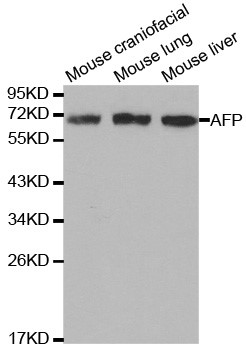Purification Services
Poly- and monoclonal antibodies are commonly purified by Protein A, Protein G or Protein A/G affinity chromatography under optimal conditions (isotype specificity for monoclonal antibodies). Furthermore, Rockland offers the generation of custom resins for the immobilization of target-specific peptides or recombinant proteins for the affinity purification of generated antiserum and serum depletion. Example gels of purified antibodies are provided below. To learn more about our purification services or to obtain a quote, visit the “Get a Quote” link below or contact us today.

Protein A, G, and A/G Purification
Poly- and monoclonal antibodies are commonly purified by Protein A, Protein G or Protein A/G affinity chromatography under optimal conditions (isotype specificity for monoclonal antibodies). Protein A/G is a recombinant fusion protein that combines IgG binding domains of both Protein A and Protein G, and is less dependent upon pH than Protein A alone.
Protein A/G binds to all subclasses of human IgG, making it useful for purifying polyclonal or monoclonal IgG antibodies whose subclasses have not been determined. Additional subclasses to which it binds, include: IgA, IgE, IgM and IgD. Protein A/G also binds to all subclasses of mouse IgG but does not bind mouse IgA, IgM or serum albumin.
Affinity purification of Antibodies
Rockland offers the generation of custom resins for the immobilization of target-specific peptides or recombinant proteins for the affinity purification of generated antiserum and serum depletion.
Fusion and non-fusion proteins can each be coupled separately, allowing binding of the affinity matrix and removal of the antibodies against part of the fusion protein. The solid support and serum are then separated and allowed to bind to the fusion protein matrix, capturing any antibodies that recognize the antigen on the solid support. Elution of the antibodies of interest is most often achieved using a low pH buffer and collected into a neutral tris or phosphate buffer, to neutralize the low pH elution buffer and halt any degradation of the antibody's activity.
In some cases, simplified strategy can be employed to purify antibodies generated against synthetically-produced peptide antigens. In these instances, a terminal cysteine residue containing sulfhydryl functional group is often added at either the N- or C-terminus of the peptide. This allows the peptide to be easily conjugated to a carrier protein, with the same cysteine-containing peptide being immobilized onto an agarose resin and used to purify the antibody.
Recombinant Protein Purification
Recombinant fusion proteins or epitope tagged proteins are purified by affinity chromatography using charged or immobilized resins under optimal conditions. HPLC-based purification services by Ion Exchange or Size Exclusion chromatography ensure delivery of recombinant proteins of exceptional purity.
All purified proteins are analyzed by SDS-PAGE analysis to determine purity, integrity, and corresponding data is provided to the customer.
